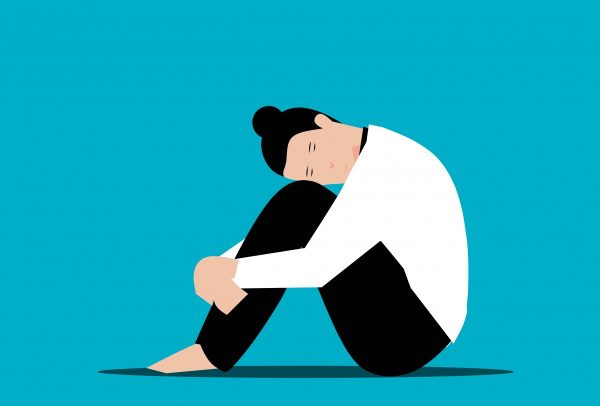“There were times, where I felt like I was about to have a heart attack, so I went immediately to the hospital…” Anxiety and Panic Disorder iare among the most common mental disorders, and affect over 40 million adults, and 1 in 5 teenagers nationwide. Locally in Calvert County, 191 students have been diagnosed with a mental health issue, anxiety being in the top 3. Anxiety along with panic disorder can be treated in many ways, and one way that many people use to moderate their anxiety or panic disorder is medication. There are a lot of different types of medication that people use for their anxiety, such as SSRIs (Selective serotonin reuptake inhibitors) or SNRIs (Serotonin norepinephrine reuptake inhibitors), along with Vistaril, Buspar, Beta blockers, Benzodiazepines, Abilify and Seroquel. Anti-depressants are also commonly used to treat anxiety disorders. I conducted an interview with someone who has anxiety and panic disorder, and uses medication to help treat it.
There are multiple ways to treat someone with anxiety, like therapy, and strategies to help in times of strong stress levels. However, in some cases medication is needed, especially for severe cases. For this profile, this person uses a form of anti-depressant that allows the right amount of serotonin to dispersed between her neurons. She has been using medication to treat her anxiety and panic disorder for almost 11 years. However, she experienced severe anxiety and panic disorder while unmedicated for a brutal 6 months before she started medication.
Many things can spark or trigger an increase of severity in a mental disorder. Anxiety is caused mostly by a nerve or hormone imbalance, which can be passed through genetics. In this person’s case she had acquired this through family genes, but she had also been working on her master’s degree, taking care of two toddlers mainly by herself, and moving to a different country which increased her stress levels, causing her anxiety to worsen immensely when she was in her late 20’s and early 30’s.
In this person’s history from going on medication, she did experience side effects. She explained that for this disease, the side effects were strongest when she first started the medication doses. During the first few weeks and months of starting the medicated process, the condition can worsen. Symptoms can differ between people, but this person she said that she felt “numb,” and “emotionless.” She couldn’t cry when she normally would and felt “feelingless”. After a few months, she felt back to normal, similar to before the disease started to show in her daily life. Instead, the medication helps her better control her symptoms.
 Trouble sleeping, eating, physical pains throughout her body and muscles, elevated heart rate, trouble concentrating, losing major amounts of weight, regular crying, and a feeling of something bad happening at any moment were all severe symptoms she experienced before starting the medicated pathway to ‘normal’. Stress and the colder months contribute heavily to her anxiety levels, in which case she must up her dose of medication for a certain amount of time. And once her surroundings improve, she lowers her dose of medication.
Trouble sleeping, eating, physical pains throughout her body and muscles, elevated heart rate, trouble concentrating, losing major amounts of weight, regular crying, and a feeling of something bad happening at any moment were all severe symptoms she experienced before starting the medicated pathway to ‘normal’. Stress and the colder months contribute heavily to her anxiety levels, in which case she must up her dose of medication for a certain amount of time. And once her surroundings improve, she lowers her dose of medication.
Anxiety affected her life so greatly to a point where all she could do one day was make cereal for her 4 and 1-year old children. She couldn’t work or cook or even leave the house. She explained, “…you’re physically hurting…”, “The muscles hurt…”, “Your heart rate is always going; you feel like you’re about to have a heart attack…”.
Some of the benefits and disadvantages to using medication to treat anxiety and panic disorders are that your symptoms are in check and that you can function normally. Medication is especially helpful for leveling out the hormones in your brain. Usually individuals with severe anxiety disorders, who use medication, are most likely to need medication their whole life just to function properly daily.
In conclusion, medication is a good option to handle severe anxiety disorders, especially where the person cannot function normally. It is always important to try different forms of treatment before resorting to medication, depending on the severity of the disease. This interview helped show a first-person point of view on what anxiety might look like, and how medication can really benefit and change someone’s quality of living.
Sources











